Emotional Trauma from a Car Accident in Ontario, Canada
Support for Emotional Trauma After a Car Accident in Ontario, Canada
Car accidents can be a dreadful experience for anyone involved, leaving lasting physical and psychological scars. In Ontario, victims of car accidents not only have to deal with the physical injuries but also the emotional trauma that can arise from such a life-altering event. The psychological effects of emotional trauma from car accidents in Ontario can be severe and long-lasting, impacting one’s ability to function and enjoy life.
However, it is possible to overcome emotional trauma from car accidents in Ontario with the right approach and support. This webpage will explore the various aspects of overcoming emotional trauma from car accidents in Ontario, including the psychological effects of trauma, strategies to get over the trauma, how to deal with trauma, and the possibility of claiming compensation for emotional trauma in Ontario.
By understanding and addressing the emotional trauma from a car accident, victims can take the necessary steps to move forward and reclaim their lives.

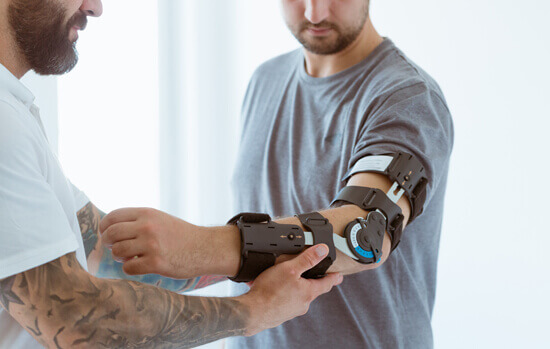
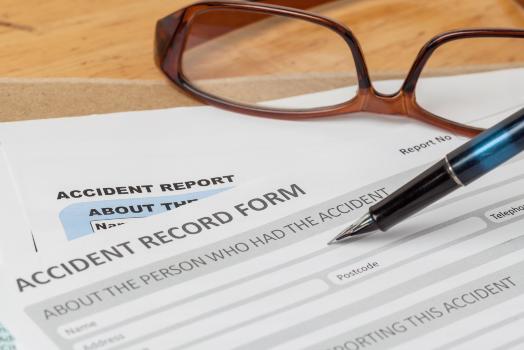
Emotional Trauma From a Car Accident in Ontario, Canada
Psychological Effects of Emotional Trauma From a Car Accident in Ontario, Canada
Car accidents are common in Ontario, with thousands of accidents reported yearly. Car accidents can be devastating events, both physically and emotionally. While most accidents only result in minor injuries, some can have severe and even life-changing consequences.
They can cause extreme emotional trauma and lead to long-lasting psychological effects. Emotional trauma is one of a car accident’s most common and often overlooked effects.
In Ontario, it is important to take the time to understand the psychological impacts of car accident trauma to treat and manage the lingering effects.
Emotional trauma, also known as psychological trauma, is a type of injury that affects a person’s mental and emotional health. It is a response to a disturbing or distressing event or experience that impacts the person’s psyche.
Emotional trauma can result from a variety of situations, including car accidents.
Car accidents can cause a range of psychological effects, including:
- Post-traumatic Stress Disorder (Ptsd)
PTSD is a mental health condition that can develop after experiencing or observing a traumatic incident, such as a car accident. Symptoms of PTSD may include intrusive thoughts, nightmares, flashbacks, hypervigilance, anger or mood swings and avoidance behaviours. - Anxiety and Panic Disorders
Following a car accident, it is not uncommon for survivors to experience heightened anxiety and even develop panic disorders. They may fear driving or being a passenger in a vehicle, causing them to avoid transportation altogether. This avoidance can severely impact their quality of life, making it difficult to maintain employment, social connections, and daily routines. Cognitive-behavioural therapy (CBT) and medication can help alleviate anxiety and panic disorders related to car accidents. - Depression
The emotional trauma from a car accident can lead to sadness, misery, and loss of interest in previously enjoyable activities. These feelings may develop into clinical depression, which can negatively impact a person’s overall well-being.
It’s crucial to recognize and address symptoms of depression early on to prevent further emotional and psychological distress. Treatment options include therapy, medication, and lifestyle changes, such as regular exercise and a healthy diet. - Sleep Disturbances
Sleep disturbances, such as insomnia or nightmares, are common among car accident survivors. These sleep issues can exacerbate existing mental health concerns, making it challenging to cope with daily stressors. Proper sleep hygiene and professional guidance can help improve sleep quality and reduce the impact of sleep disturbances on a person’s mental health. - Fear and Phobias
After a car accident, it is natural for people to develop a fear of driving or riding in cars. This fear can become a phobia that affects their daily lives and prevents them from engaging in activities they used to enjoy. - Anger and Irritability
Car accidents can be frustrating and overwhelming, which can lead to feelings of anger and irritation. These feelings can be directed at other drivers, passengers, or even loved ones. - Substance Abuse
Some people may be addicted to drugs or alcohol to cope with the emotional trauma of a car accident. This can lead to addiction and other negative consequences. - Emotional Instability
Emotional instability is another psychological effect of emotional trauma from car accidents. Individuals involved in a car accident may experience mood swings, irritability, and anger.
These emotions can be difficult to manage and can interfere with the individual’s relationships with others. In Ontario, individuals who have experienced emotional instability after a car accident may require therapy to learn how to manage their emotions. - Guilt and Shame
Guilt and shame are other psychological effects that can result from emotional trauma following a car accident. Survivors may experience guilt for surviving the accident while others did not or for causing the accident themselves. Shame can arise from the physical scars or injuries resulting from the disaster, as well as any emotional trauma experienced.
It is important for individuals experiencing guilt or shame to seek support from loved ones and professional help if necessary. Talking about these feelings with a therapist or counsellor can help individuals work through these emotions and move forward in their recovery. - Social Isolation
Social isolation is another potential psychological effect of emotional trauma resulting from a car accident in Ontario. Survivors may become withdrawn or avoid social situations due to fear or anxiety. This can lead to feelings of desolation and depression.
Survivors need to stay connected with loved ones and seek support from friends and family. Professional help may also be beneficial in addressing feelings of social isolation and anxiety.
Physical trauma is usually the first concern when involved in a car accident. However, emotional trauma can be just as damaging and should be taken seriously. Psychological effects from car accident trauma may include all the above problems.
It is important to get help from a professional when experiencing any of these symptoms. A mental health practitioner can provide treatment options and help you to process the trauma healthily. They may suggest therapy, medication or both to manage the psychological effects.
Filing an insurance claim for psychological injuries incurred during a car accident is also possible in Ontario. You can contact our recommended personal injury lawyer to discuss your claim in detail.



Recovering From a Car Accident Trauma in Ontario, Canada
How Long Does It Take to Get over Trauma from a Car Accident in Ontario, Canada
In Ontario, car accidents can be a traumatic experience for anyone involved, and the road to restoration can be a long and difficult one. The amount of time it takes to resume a car accident trauma can vary significantly depending on a range of components, including the severity of the accident, the individual’s personal circumstances, and the support they receive during their recovery.
In Ontario, many resources are available to help individuals recover from the trauma of a car accident. From medical and mental health professionals to support groups and community organizations, there is no shortage of resources to help individuals cope and move forward.
One of the most important factors in recovery is the extent of the physical injuries sustained in the accident. Even minor injuries can take weeks or months to heal, while more serious injuries may require surgery and extensive rehabilitation. The healing process can be slow and opposing, and individuals need to be patient and take the time they need to recover fully.
Another factor impacting recovery time is the emotional trauma of a car accident. Many individuals experience the psychological effects mentioned above, which include anxiety, depression, and post-traumatic stress disorder (PTSD) following a car accident. This emotional trauma can be just as debilitating as physical injuries and can significantly impact an individual’s quality of life.
Recovering from emotional trauma can take time and may require therapy or counselling. Individuals need to seek help as soon as possible following a car accident to ensure they receive the support they need to cope with their emotions and move forward.
If you or someone you love has been involved in a car accident trauma, it is important to pursue help as soon as possible. Whether you need medical care, emotional support, legal advice, or someone to talk to, resources are available to help you cope and move forward. With time, patience, and the right support, you can overcome the trauma of a car accident and begin to rebuild your life.
In addition to physical and emotional trauma, the legal process following a car accident can also impact recovery time. In Ontario, individuals injured in a car accident may be entitled to compensation for their injuries and other losses. However, the process of pursuing a claim can take time and effort.
Working with an experienced personal injury counsellor can help individuals navigate the legal process and ensure they receive the compensation they deserve. This can provide peace of mind and allow individuals to focus on their recovery without the added stress of legal proceedings.


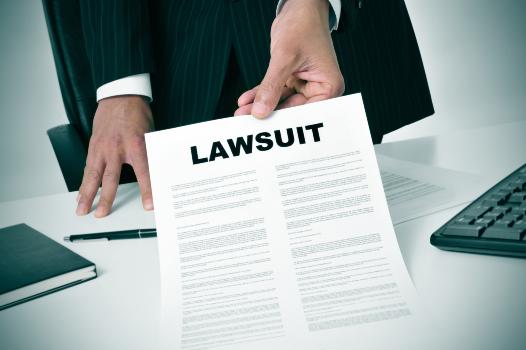
How to Get Over Trauma from a Car Accident in Ontario, Canada
How to Get over Trauma from a Car Accident in Ontario, Canada
Surviving a car accident can leave lasting physical and emotional scars that can take a significant toll on an individual. The aftermath of such a harrowing experience can be challenging to navigate, especially when one feels overwhelmed by the myriad consequences.
In Ontario, practical steps and coping strategies can guide you through healing, helping you regain your sense of control and well-being.
- Seek Professional Help
It’s important to seek professional help to deal with the psychological impact of a car accident. Many resources are available in Ontario, including trauma therapy, counselling, and support groups. Your physician or a mental health professional can help you adopt the best treatment course for your specific needs.
Joining a support group can be a helpful way to connect with others who have experienced similar trauma. It can provide a safe and supportive environment to share your feelings and experiences. - Take Care of Yourself
It’s important to prioritize self-care after a traumatic event. This can include getting enough sleep, eating a healthy and balanced diet, and exercising regularly. Taking care of your physical health can also positively impact your mental health. Furthermore, you can engage in relaxation and stress-reduction activities.
Relaxation techniques such as deep breathing, meditation, and yoga can help you manage symptoms of anxiety and stress. - Talk to Loved Ones
Talking about your experience with trusted friends and family can help you process your emotions and feel less alone. Talking to someone who has been through a similar experience can also be helpful. - Be Patient with Yourself
Healing from trauma takes time, and there is no set timeline for recovery. Be patient with yourself, and don’t pressure yourself to “get over it” quickly. Allow yourself to feel your emotions and work through them at your own pace. - Attend Regular Check-ups with Your Doctor
If you sustained physical injuries in the accident, attend regular check-ups with your doctor. This will help you stay on top of your physical recovery and ensure that any underlying health issues are addressed. - Reintroduce Driving Gradually
As you recover, slowly ease back into driving. Begin with short, familiar routes and progress to longer distances and busier roads. This gradual exposure can help rebuild your confidence behind the wheel. - Set Realistic Expectations
Healing takes time and patience. Recognize that progress may be slow and nonlinear. Celebrate small victories and remain patient with yourself throughout the recovery process. - Reintroduce Driving Gradually
As you recover, slowly ease back into driving. Begin with short, familiar routes and progress to longer distances and busier roads. This gradual exposure can help rebuild your confidence behind the wheel. - Avoid Triggers
Certain sights, sounds, or situations may trigger memories of the car accident and make you feel anxious or upset. Try to avoid these triggers as much as possible, or develop coping strategies to help you deal with them when they occur. - Obtain Legal Advice
Navigating insurance claims and potential legal disputes can be complex. An experienced personal injury lawyer can guide you through the process, ensuring you understand your rights and receive fair compensation.
If you were involved in a car accident in Ontario caused by another person’s negligence or recklessness, you may be entitled to compensation for any psychological injuries resulting from the accident. Contact a lawyer directly and discuss your situation to determine if filing an insurance or personal injury claim is appropriate.

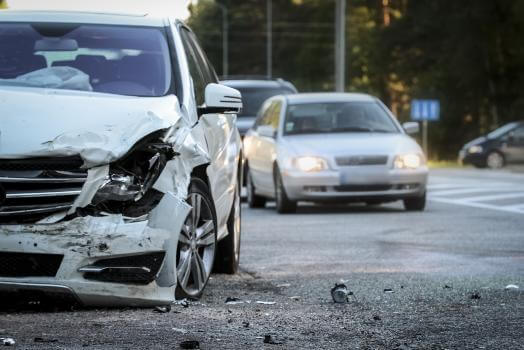

Can You Claim for Trauma from a Car Accident in Ontario, Canada
Can You Claim for Trauma from a Car Accident in Ontario, Canada
Suppose you’ve been in a car accident in Ontario and have experienced psychological trauma. In that case, you may be able to claim compensation. However, the process for claiming compensation for this type of injury can be complex and involve multiple factors. Understanding psychological trauma’s physical, emotional, and financial impacts is essential to successfully file a claim.
If you have been involved in a car accident in Ontario and have suffered emotional trauma. As a result, you may be wondering if you can claim compensation for your injury.
Emotional trauma can be caused by various factors, including the accident’s severity, the injuries sustained, and the emotional impact of the accident on the victim.
In Ontario, you may claim compensation for emotional trauma if you can show that your injury was caused by another driver’s negligence. This means that you must demonstrate that the other driver failed to exercise reasonable care in driving their vehicle and that this failure directly caused your emotional trauma.
On the other hand, physical trauma in a car accident refers to any physical injuries sustained due to the accident. This can include cuts, bruises, broken bones, or more serious injuries such as spinal cord damage or traumatic brain injury.
If you have suffered physical trauma in a car accident, you may be eligible to claim compensation. In Ontario, car accident victims may be entitled to accident benefits, which can cover medical expenses, rehabilitation costs, and lost income resulting from the accident. Additionally, suppose the accident was caused by another driver’s negligence. In that case, you may be able to file a personal injury claim to seek further compensation.
To make a successful claim for emotional or physical trauma, you must show that you have significantly impacted your life due to the accident. This may include a loss of enjoyment of life, a loss of income or earning capacity, and a need for ongoing medical treatment or therapy.
Several factors can impact the compensation you can claim for emotional trauma. These include the severity of your injury, its impact on your life, and the amount of medical treatment and therapy required to manage your symptoms.
Suppose you have suffered emotional trauma due to a car accident in Ontario. In that case, you may be able to claim compensation for your injury. It is important to seek the advice of a qualified personal injury lawyer, who can guide you through making a claim and help you understand your rights and options. Remember, you don’t have to suffer in silence – help is available.

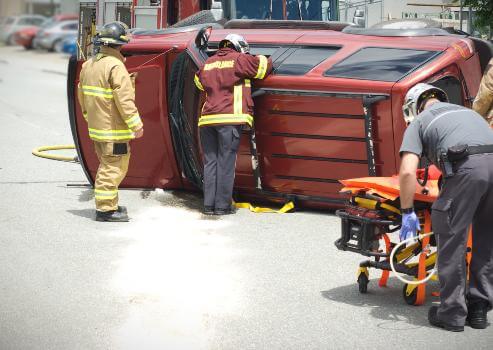

How to Deal with Trauma from a Car Accident in Ontario, Canada
in Ontario, Canada

InjuredInAnAccident.ca
, Ontario
Tel: (647) 952-4280

*The laws pertaining to automotive injuries are complex and are contsantly evolving. The information on this website was not written by legal professionals and should not be considered legal advise. Please contact a professional personal injury lawyer serving Ontario for the most up to date and accurate information.




